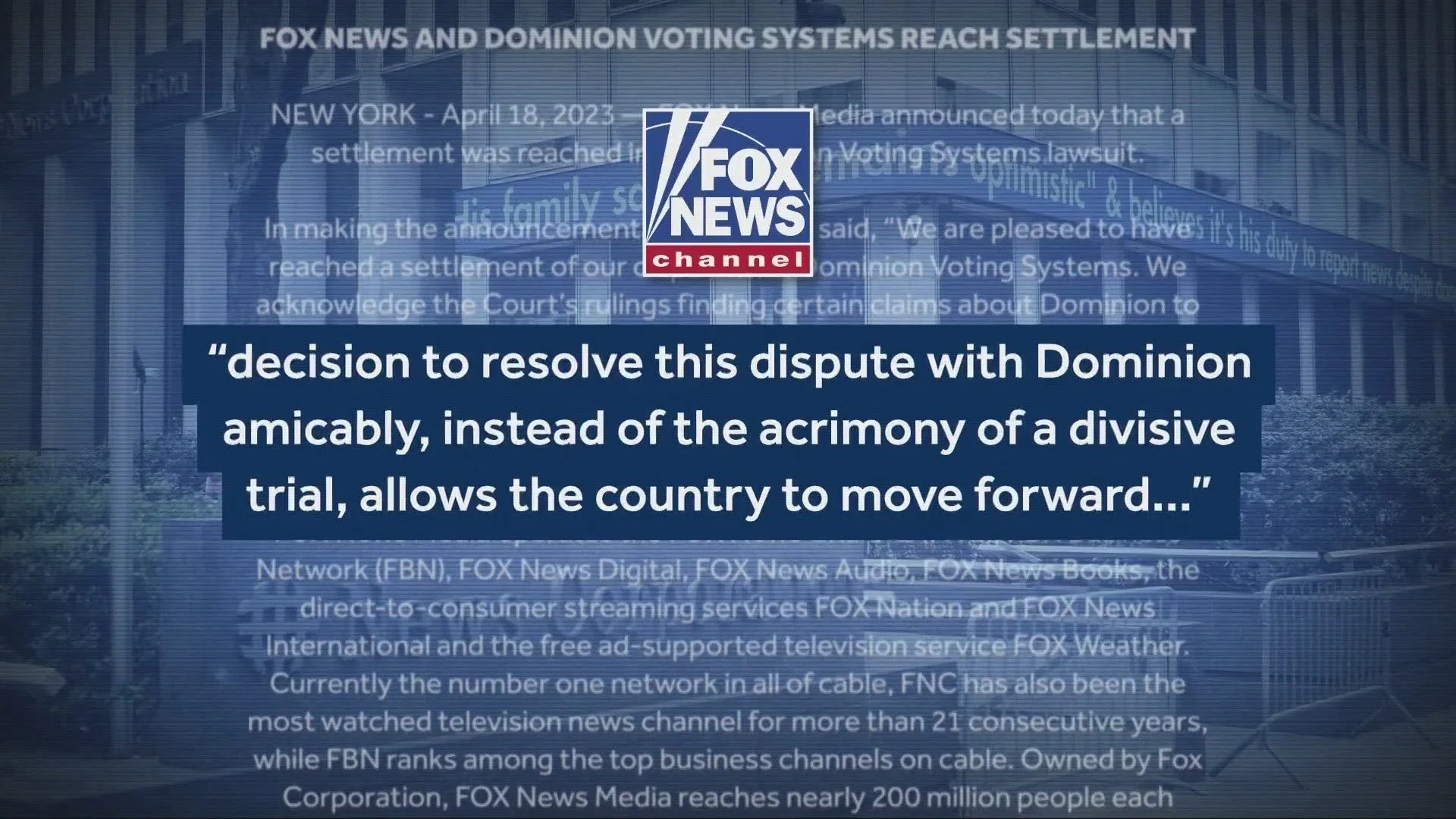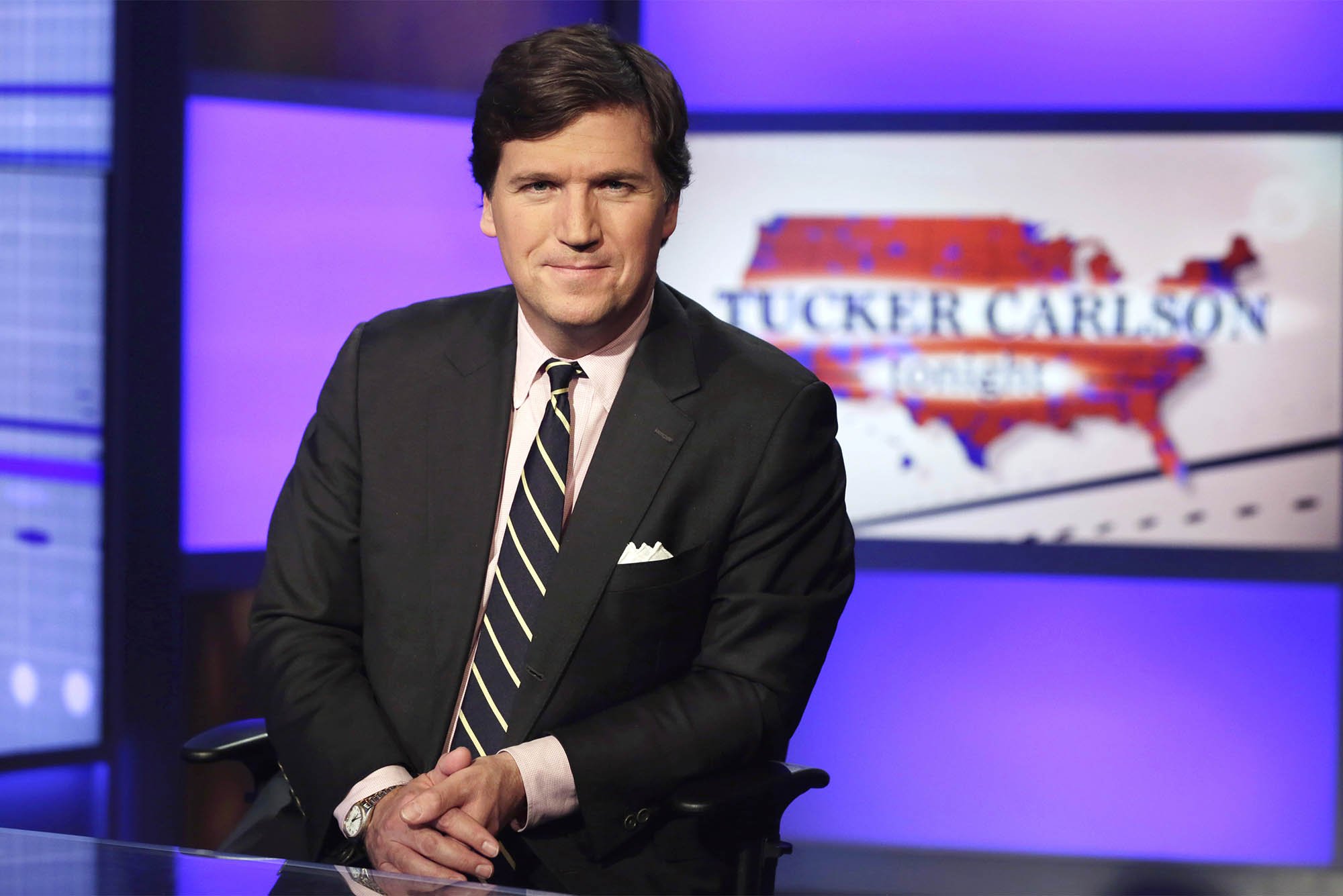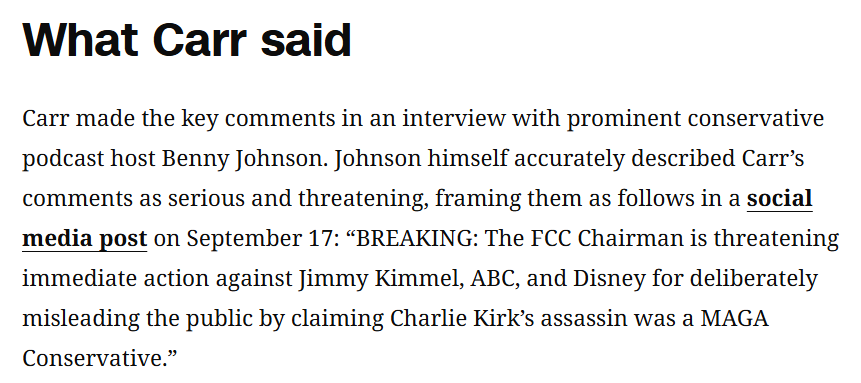When Free Speech Becomes a Liability: Kimmel, Carlson, and the Public Airwaves
Recently, the Federal Communications Commission (“FCC”) pressured ABC into indefinitely suspending Jimmy Kimmel’s comedy show. Many view this as government overreach. But one aspect often overlooked is that, as a licensed broadcaster, ABC has an obligation to the FCC and the public not to spread false information. The question is: what happens when false news is left to remain on the air? To answer that, it helps to revisit Dominion Voting Systems v. Fox News.
In March 2021, Dominion Voting Systems filed a defamation lawsuit against Fox News Channel and Fox Corporation, alleging that Fox and some of its hosts (including Tucker Carlson) broadcast false claims that Dominion’s voting machines were rigged to steal the 2020 presidential election. Fox argued the statements were opinion, not factual claims, and therefore protected under the First Amendment. But the Delaware Superior Court disagreed, holding that none of the disputed statements were true and rejecting Fox’s “pure opinion” defense. The court ordered a trial to determine whether Fox acted with “actual malice” (knowingly airing falsehoods or recklessly disregarding the truth). Just before trial in April 2023, Fox settled for $787.5 million and acknowledged that it had broadcast false statements. Shortly after, Fox announced Tucker Carlson’s departure from the network.
So how does this connect to the FCC, given it played no role in Dominion’s lawsuit? Unlike private defamation actions, the FCC regulates broadcasters through licensing. Those licenses come with the obligation to serve the “public interest, convenience, and necessity” under the Communications Act. The FCC has limited rules against knowingly broadcasting false information that causes substantial public harm. For example, 47 CFR § 73.1217 (the Hoax Rule) prohibits stations from knowingly broadcasting false information about a crime or disaster if it causes foreseeable, immediate harm. The FCC can also act against broadcasters who deliberately distort the news, such as staging events or knowingly reporting false facts. In practice, the FCC intervenes only when false information crosses into the hoax or distortion category.
If the FCC finds a violation, it can issue a Notice of Apparent Liability, which may lead to fines ranging from thousands to millions of dollars. In more serious cases, the FCC can deny license renewals, revoke licenses, or impose conditions on future renewals. These tools, while rarely used, are powerful enough to put broadcasters on edge when the agency signals disapproval.
This brings us back to Jimmy Kimmel. His statement, “We hit some new lows over the weekend with the MAGA gang desperately trying to characterize this kid who murdered Charlie Kirk as anything other than one of them and doing everything they can to score political points from it,” was widely understood as implying that the shooter was tied to MAGA, even though law enforcement had not established that.
The FCC chair publicly criticized Kimmel’s comments as misinformation. Because ABC’s affiliates operate under FCC licenses, the network is highly sensitive to regulatory scrutiny. While the FCC rarely acts against political commentary, it can act against broadcasters if it concludes they deliberately aired false information or distorted the news in a way that harms the public interest. Faced with this risk, ABC likely saw Kimmel as a liability, much as Fox came to see Carlson. Even if the FCC never formally intervened, the mere possibility of fines, license fights, or hearings put hundreds of millions of dollars in broadcast licenses at risk. Suspending Kimmel’s show allowed ABC to signal corrective action and reduce its exposure.
Adding to the pressure, numerous affiliate groups, including Sinclair Broadcast Group and Nexstar Media Group, demanded that Kimmel apologize. Affiliates are local stations that carry ABC’s programming and provide its national reach. Without their support, ABC cannot effectively broadcast its shows across the country. Kimmel refused to apologize. Yet had he done so, it likely would have satisfied affiliates, eased local backlash, and signaled to the FCC that ABC was taking corrective action. While the FCC does not require apologies, retractions and corrections often weigh heavily in whether it escalates a matter to fines or licensing action. A prompt and sincere apology might have saved Kimmel’s show, just as Fox might have avoided greater fallout had it taken earlier corrective steps during the Dominion controversy.
Tucker Carlson and Jimmy Kimmel ultimately faced consequences for the same reason: their networks concluded that their words had become liabilities. Carlson’s downfall came through a private lawsuit, where Dominion proved Fox aired false claims and forced a massive settlement. Kimmel’s trouble stemmed from FCC oversight and affiliate backlash after his comments about Charlie Kirk’s shooter. Together, their cases show that while the First Amendment shields speech from direct government censorship, it does not protect broadcasters or their hosts from financial, contractual, or regulatory fallout when speech crosses into misinformation.
In the end, Carlson and Kimmel illustrate two different paths to the same reality. Broadcasters live and die by their credibility and compliance with the rules of the public airwaves. Fox lost Carlson after a costly defamation suit exposed the dangers of airing false claims, while ABC suspended Kimmel under the shadow of FCC oversight and affiliate pressure. Whether through billion-dollar settlements or the looming threat of regulatory scrutiny, networks are forced to act when speech crosses the line from commentary into misinformation. Kimmel’s refusal to apologize sealed his fate, not because free speech has no value, but because free speech on licensed airwaves carries responsibilities, and failing to balance those responsibilities against liability can cost even the most popular hosts their platforms.



